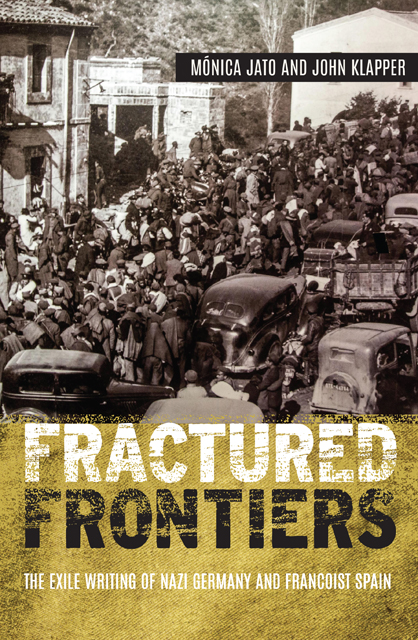5 - Blurring of the Lines: The Complexities of Return to Germany
Published online by Cambridge University Press: 18 January 2023
Summary
“An exile never returns.” These are the words of South African writer Breyten Breytenbach, whose opposition to apartheid forced him to seek exile in France. He argues that those who stayed behind and did not go into exile know no “before,” they only know continuity, whereas, addressing the exile, he says, “For you it was a fugue of disruptions. The thread is lost. You made your own history at the cost of not sharing theirs. The eyes, having seen too many different things, now see differently.” This neatly encapsulates an essential difference between the inner and territorial exile and also the challenges facing would-be returnees. This chapter explores these challenges for territorial exiles in the post-Nazi context but at the same time shows how inner and outer were far more intertwined than the fateful postwar controversy and subsequent bifurcation might lead one to believe. A sketch of literary developments in Germany after the war is followed by case studies of four exiled writers who endured a problematic return. Three of these at different times experienced periods of “inner emigration,” and their work thematizes the inner-outer debate. The fourth involves a writer whose successful poetic engagement with exile and its aftermath offers a generally more optimistic view of the possibilities of return.
The Postwar Literary Landscape
Around 50 percent of the 500,000 political exiles from German-speaking lands came back to Germany; but only 4 percent of the 278,000 Jewish refugees did so, most of them returning between 1952 and 1959. Eighty-three percent of writers also failed to return to Germany or Austria. Significant figures included Vicki Baum (United States), Elias Canetti (England; later, Switzerland), Lion Feuchtwanger (United States), Erich Fried (England), Oskar Maria Graf (United States), Nelly Sachs (Sweden), Erich Maria Remarque (Switzerland), and Peter Weiss (Sweden). Many such writers had established firm ties to their host countries; their children spoke the languages of their hosts, felt at home in the lands of exile, and knew relatively little about Germany. Furthermore, the devastated postwar Germany of occupation seemed to have little to offer them professionally. Most thus chose, or were forced by visa problems, to delay returning.
- Type
- Chapter
- Information
- Fractured FrontiersThe Exile Writing of Nazi Germany and Francoist Spain, pp. 146 - 178Publisher: Boydell & BrewerPrint publication year: 2020



